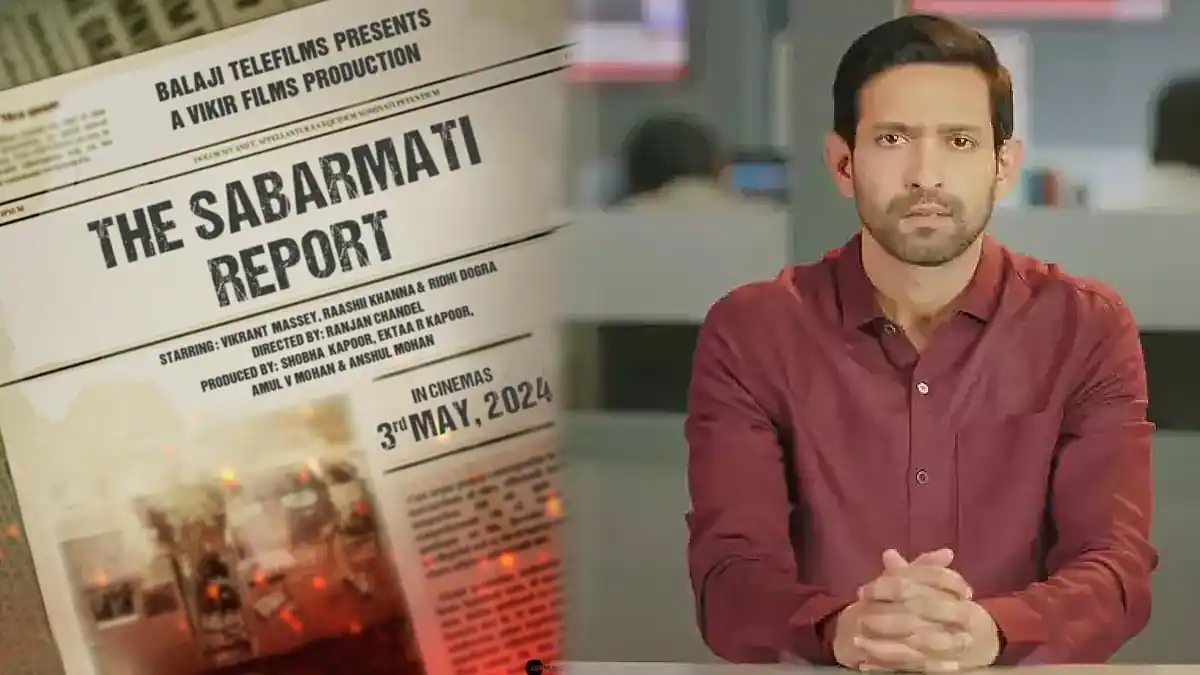The Congress party, once a dominant force in Indian politics, now finds itself rattled by a series of political films that expose its controversial history. Following the uproar over The Kashmir Files and The Kerala Story, another film, The Sabarmati Report, has hit the screens, dragging the party into yet another uncomfortable spotlight. This latest film has been publicly praised by Prime Minister Narendra Modi and Home Minister Amit Shah, further emphasizing its resonance with the audience and its significance in the ongoing narrative wars. The Sabarmati Report delves into the tragic events of February 27, 2002, when the Sabarmati Express, carrying karsevaks and pilgrims from Ayodhya, was attacked near Godhra. The brutal assault, which began with stone-pelting and escalated to setting four train coaches ablaze, claimed the lives of 59 passengers. This horrific incident ignited communal violence across Gujarat, marking one of the darkest chapters in Indian history. While the tragedy should have been a moment for national introspection, it became a political battleground. The Congress-led central government, instead of focusing on justice and healing, allegedly sought to tarnish the then Gujarat Chief Minister Narendra Modi and his cabinet colleague Amit Shah. By commissioning a controversial report that termed the fire an “accident,” the Congress seemed intent on spinning a narrative to politically implicate its opponents. After years of legal battles, Modi and Shah were exonerated of any wrongdoing. Investigations by the Special Investigation Team (SIT), appointed by the Supreme Court, found no evidence of their complicity in the riots that followed the Godhra incident. Despite facing an international smear campaign and a hostile political climate, Modi’s BJP not only survived but thrived, transforming Gujarat into its stronghold and eventually rising to national dominance.

Films like The Sabarmati Report do more than revisit history—they challenge deeply entrenched narratives. The movie’s protagonist, played by actor Vikrant Massey, portrays a journalist determined to uncover the truth, shedding light on the political manipulations that sought to turn a tragedy into a weapon against rivals. This is precisely what unsettles the Congress. For a party that often champions freedom of expression, its history of suppressing dissenting voices through bans and censorship lays bare a double standard. The Congress has banned films that reveal uncomfortable truths or portray its missteps. From its reaction to the Emergency-era excesses being depicted in films to its unease over recent cinematic works, the party’s intolerance for critique seems glaringly evident. The release of The Sabarmati Report underscores this fear, as it not only revisits a contentious past but also highlights the political culture of vindictiveness and manipulation. The Congress’s opposition to such films signals its larger struggle for relevance. Having lost its grip over the political narrative and failing to mount a credible challenge to the BJP, the party’s frustration is palpable. Films like The Sabarmati Report serve as a mirror to its past, reminding the public of how it exploited tragedies for political gains. Instead of embracing accountability, the Congress appears intent on suppressing inconvenient truths. In doing so, it risks alienating itself further from a populace increasingly drawn to stories of resilience, justice, and the triumph of truth over propaganda.






